One of the questions that I am frequently asked is, what does a good teacher look like? I respond by mentioning my 10th-grade Biology teacher, Mrs. Minor, and listing the attributes that made her the archetype of a great teacher.
One of the questions that I am frequently asked is, what does a good teacher look like? I respond by mentioning my 10th-grade Biology teacher, Mrs. Minor, and listing the attributes that made her the archetype of a great teacher.
Building a culturally responsive classroom is hard. To help you along your journey, here is your guide to exploring and respecting the cultural backgrounds of your students while also using diversity as an asset. If you you listen to this episode of the podcast, and take my advice, you will have a culturally responsive classroom in no time.
References
Culturally responsive teaching is a theory of instruction that was developed by Dr. Gloria Ladson-Billings and has been written about by many other scholars since then. To read more of her work on culturally responsive teaching and other topics, click here to visit her Amazon.com page.
It seems that every year around this time, school districts around the country report not being able to fill all of their open teacher vacancies. Why do these cyclical teacher shortages occur? In this episode of the podcast, we will explore this topic in-depth.
As summer reaches its peak, and fall gears up to make its arrival, students, parents, teachers, and administrators are all preparing for the beginning of a new academic year. So many gains were made last year, and they are eager to build upon that success. When we talk about education stakeholders who are concerned with starting the school year off right, we rarely, if ever, talk about edtech companies. They too are an integral part of the school community, as they provide a valuable service.
So how do edtech companies stay on their “A” games to begin the new school year? Not to worry, we have you covered.
Hello, my name is Dr. Matthew Lynch and welcome to the second episode of The Edvocate Podcast. Today, we will discuss back to school tips that will help your edtech company get off to a running start and sustain that momentum until summer break comes around again.
Every day, technology innovations transform the way people learn and how educators teach. In the last few years, the edtech field has attracted a lot of talented people, all with excellent knowledge bases and ideas. Though the edtech industry has been around for a few decades now, the last few years, in particular, have seen a surge in investment from both school districts and investors.
The education market is currently worth around $5 trillion globally, and it is forecasted that edtech investment alone will reach $252 billion by the year 2020. This growing investment into edtech start-ups has created some exciting changes in the world of education. Naturally, with increasing capital, the number of edtech companies, products, and thought leaders is also growing. In that spirit of change and innovation, we present the Tech Edvocate Awards.
After 4 months of hard work, we’ve narrowed down the year’s top edtech companies, products, people and more. We solicited nominees from readers in June/July and held online voting from June 1, 2018 – August 21, 2018. The nominee’s performance during the online voting period was used to gauge their popularity, but in no way signaled that they would become a finalist or walk away with an award. The finalists and winners were ultimately selected by a panel comprised of two edtech thought leaders, two PreK-12 teachers, one college professor, two K-12 administrators, one college administrator and two PreK-12 parents. Here are our winners and finalists for 2018. Winners and finalists can access their award seals by clicking here.
Best Lesson Planning App or Tool
Winner: ClassFlow
Finalists:
Best Assessment App or Tool
Winner: MobyMax
Finalists:
Evo Social/Emotional by Aperture Education
Best Early Childhood Education App or Tool
Winner: HeadSprout
Finalists:
KIBO – The STEAM Robot Kit for Children 4 – 7
Canticos Los Pollitos (Little Chickies) App
Best Literacy App or Tool
Winner: Lexia Core5 Reading
Finalists:
Best Math App or Tool
Winner: MATHia
Finalists:
ExploreLearning Reflex
Best STEM/STEAM Education App or Tool
Winner: Vernier Go Direct® Sensors with Graphical Analysis™ 4 @VernierST
Finalists:
FlinnSTEM Powered by IMSA Fusion
Best Language Learning App or Tool
Winner: Sprig Learning
Finalists:
Best Virtual or Augmented Reality App or Tool
Winner: HoloLAB Champions
Finalists:
Best Personalized/Adaptive Learning App or Tool
Winner: Nearpod
Finalists:
AVer CP3Series Interactive Flat Panel
Curriculum Associates i-Ready Mathematics and Reading
Best Coding App or Tool
Winner: CoderZ by Intelitek
Finalists:
Best Gamification App or Tool
Winner: Kahoot!
Finalists:
Best Learning Management System
Winner: NEO LMS
Finalists:
Best Blended/Flipped Learning App or Tool
Winner: FlinnPREP
Finalists:
Best Assistive Technology App or Tool
Winner: Robots4Autism
Finalists:
Best Parent-Teacher/School Communication App or Tool
Winner: Bloomz
Finalists:
Best Collaboration App or Tool
Winner: Boxlight MimioSpace
Finalists:
ADVANCEfeedback by Insight ADVANCE
Snowflake MultiTeach® (NUITEQ®)
Best Tutoring/Test Prep App or Tool
Winner: GradeSlam
Finalists:
Best Classroom/Behavior Management App or Tool
Winner: NetSupport School
Finalists:
Best Classroom Audio-Visual App or Tool
Winner: ActivPanel
Finalists:
Epson BrightLink 710Ui Interactive Laser Display
Best Higher Education Solution
Winner: Study.com
Finalists:
Best Learning Analytics/Data Mining App or Tool
Winner: Otus
Finalists:
Best Professional Development App or Tool
Winner: ADVANCEfeedback by Insight ADVANCE
Finalists:
Best Student Information System (SIS) App or Tool
Winner: Alma
Finalists:
Best Global EdTech Leader
Winner: Dr. Edward Tse
Finalists:
Best Global EdTech Company
Winner: MobyMax
Finalists:
Best Global EdTech Startup
Winner: Learnamic
Finalists:
Best K-12 School Leader
Winner: Dr. Adam Hartley, Fenton Area Public Schools, Genesee County, Michigan
Finalists:
Yvonne Mackey-Boyd, River Roads Lutheran School, St. Louis, MO
Shawn Wigg, Director of Mathematics, Duval County Public Schools
Best Higher Education Leader
Winner: Nichole Pinkard, Professor, Depaul University, Chicago, IL
Finalists:
Anant Agarwal, edx, Cambridge, MA
Best School District Technology Coordinator/Director
Finalists:
John Martin, Inter-Lakes School District, Meredith, NH
Best K-12 Teacher
Winner: Crystal Avila, Socorro High School, El Paso Texas
Finalists:
Cathy Haskett Morrison, Peel District School Board, Canada
Best College/University Professor
Winner: David J. Malan, Harvard University
Finalists:
Nicole Kraft, Ohio State University
Best EdTech PR Firm
Winner: PR With Pananche
Finalists:
J Harrison Public Relations Group
Conclusion
As you can see, there is no shortage of award winners in edtech. With these innovative edtech companies, products and people in mind, it becomes clear that the landscape of education is vast and technology is carving a new path for present and future educators. Well, that does it for the 2nd Annual Tech Edvocate Awards. We will be back, bigger and better in 2019.
Regardless of where you go in the world, teachers are the backbone of the education system. Without quality teachers, school districts cannot provide students with the skills that they need to be successful academically. Without teachers, the next generation will not be able to compete in the global economy. These are sureties, and you will find few people who would disagree.
If you have been studying the field of education closely, as we have, you know that it is undergoing a metamorphosis. Students no longer respond to the teacher-centered pedagogy that our forefathers did. No, today’s students are immersed in a technologically advanced world and possess attention spans that last only a few seconds.
Because of this, today’s teacher needs to add a new skill set to their repertoire to be successful. In this today’s podcast, we will discuss the 8 key attributes that successful digital age teachers possess.
For over 15 years, veteran educator Matthew Lynch has written about and researched the field of education. On “The Edvocate Podcast,” he discusses education trends, issues, and futures. To join him on this journey, click the subscribe button so you can be alerted when the first episode goes live.
A 2012 study by the Online Learning Consortium found that 2.6% of higher education institutions in the USA were offering some form of online degree course or module. Since then, this number has increased, and online courses have demonstrated their power to widen access to university among learners who have traditionally experienced difficulties in engaging with campus-based courses.
Nevertheless, all too often, students and faculty members alike see online courses as the ‘second best’ option when compared to campus-based courses. This should not be the case! So, here are three ways to ensure online course quality at your university.
Of course, high-quality training needs to be provided to tertiary educators to ensure that they can deliver online courses to the highest standard.
Do you think that anything has been missed out in this article? What do you, as either a student or as an educator, think makes an online course successful?
Who are the biggest edtech influencers in the world? The Edvocate editorial team has exhaustively researched the movers and shakers of edtech and selected 20 global influencers. To frame our methodology, we decided to define edtech influencer broadly. On this list, you will find administrators, bloggers, journalists, policymakers, researchers, innovators, businessmen, activists, etc. who are transforming the edtech space as we know it.
The influencers that we chose are all active in the area of edtech, doing something influential in 2018, well-known throughout the edtech landscape, and making an impact globally. We are excited to witness how these influencers continue to change the world this year, and we are anxious to see who will stand on the shoulders of these giants, and as a result, make our list next year. Without further ado, here is The Edvocate’s 2018 EdTech 20: A Ranking of 20 Global Edtech Influencers.
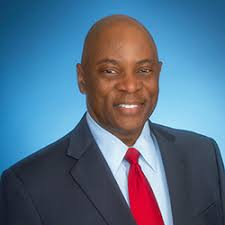
CEO and Chairman of the Board of Directors at K12
What His Current Focus Is: Mr. Davis is the CEO of K12, a technology-based education company and leading provider of online curriculum and school programs for students in pre-K through high school. As CEO and Chairman, he focuses on strengthening the K12 organization, its operations, and its academic programs. He is the person responsible for K12’s meteoric rise over the last decade.
How He’s Transforming the EdTech Space: Under his helm, K12 is driving innovation and advancing the quality of education by delivering state-of-the-art, digital learning platforms and technology to students and school districts across the globe. K12’s curriculum serves over 2,000 schools and school districts and has delivered millions of courses over the past decade. K12 is a company of educators providing online and blended education solutions to charter schools, public school districts, private schools, and directly to families. The K12 program is offered through more than 70 partner public schools and school districts and public and private schools serving students in all 50 states and more than 100 countries.
What His Background Is: Mr. Davis received an MBA from the Wharton School of the University of Pennsylvania, an MS in Engineering Computer Science at the Moore School of the University of Pennsylvania, and a BS in Engineering from Stevens Institute of Technology.
What May Surprise You About Him: With a personal passion for serving children and helping them achieve higher levels of success, Mr. Davis founded the JANDT Foundation to aid minority children in attending private and parochial schools in the Washington, DC area.
Twitter: @K12bloggED
Email: N/A
2. Sal Khan
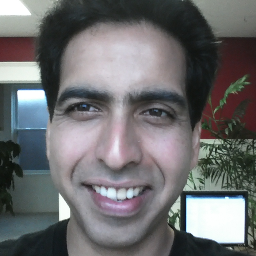
Founder and Executive Director of Khan Academy
What His Current Focus Is: Sal Kahn is an American educator who has founded both an online education platform called the Khan Academy, as well as a physical school, the Khan Lab School. The Khan Academy is a free service that offers over 6500 video lessons on a range of topics and subjects, through primarily focused on math and science. The Khan Academy’s YouTube page has more than 2.9 million subscribers.
How He’s Transforming the EdTech Space: Khan’s goal is to reach as many students as possible, regardless of resources, and so his mission is to make his lessons accessible and free. Kahn’s videos, therefore, have become vital educational resources for rural African and Asian students.
What His Background Is: Kahn graduated from MIT with a Bachelor’s of Science in math, electrical engineering, and computer sciences; he then earned an MBA from Harvard. Kahn worked hedge fund analyst. As his online tutoring and education videos gained popularity, he quit his hedge fund position in 2009 to shift his focus to crafting and developing his online education endeavors.
What May Surprise You About Him: The Khan Academy began as a way for Kahn to tutor his cousin long-distance.
Twitter: @khanacademy
Email: [email protected]
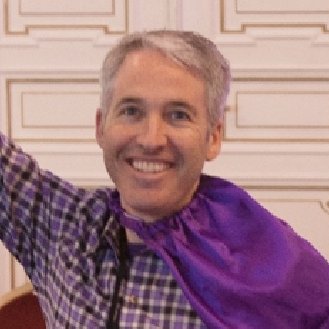 Principal Product Manager on the #MicrosoftEDU Team
Principal Product Manager on the #MicrosoftEDU Team
What His Current Focus Is: Mike Tholfsen is the Principal Product Manager on the Microsoft Education team. He mainly focuses on OneNote Class and Staff Notebooks, Learning Tools and Microsoft Teams. He has spent over 20 years at Microsoft, helping to shape their education division. Mike works with educators and pupils from all over the world to create products that improve student outcomes. He works tirelessly to promote Microsoft Education and their products. This has resulted in an increased share of the edtech market for Microsoft.
How He’s Transforming the EdTech Space: Mike is transforming the edtech space by creating products that 1. Help teachers maximize their productivity; 2. Level the playing field for students from minority groups and those that have special needs; and lastly 3. Take advantage of the power and promise of personalized learning and artificial intelligence.
What His Background Is: Mike has a B.S. in Information Systems from the University of Washington. Although he does not have a background in education, he has worked hard to come up to speed. He has a firm grasp on the intersection of education and technology, as evidenced by the wonderful products that have been released under his watch.
What May Surprise You About Him: Mike’s favorite book is The Fourth Turning, by William Strauss and Neil Howe.
Twitter: @mtholfsen
Email: [email protected]
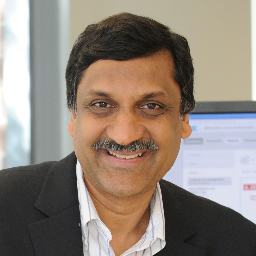
Founder and CEO of edX
What His Current Focus Is: Professor Anant Agarwal is currently a professor of Electrical Engineering and Computer Science at the Massachusetts Institute of Technology. He is also one of the founders and the CEO of edX, a MOOC (massive online open course forum) and non-profit organization. He created and taught the first edX course – one on circuits and electronics – which boasts an enrollment of over 155,000 students from over 160 countries across the world. In addition to his work at MIT and on edX, Anant hacks on an online circuit’s lab called WebSim in his free time.
How He’s Transforming the EdTech Space: Anant has long been an outspoken advocate of MOOCs, which strive to make education accessible to learners at low or no cost, worldwide. edX draws courses from the nation’s – and the world’s – leading educational institutions. They offer many free courses, and students can choose to pay a fee for a certificate. These fees help continue to fund free classes.
What His Background Is: Anant was born in Mangalore, India in 1959. He studied at St. Aloysius Mangalore, the Indian Institute of Technology Madras, and received his Ph.D. in Electrical Engineering from Stanford University. In addition to edX, Anant has worked on various engineering and computer technology endeavors including Sparcle, Alewife, Virtual Wires, LOUD, Oxygen, and Fugu.
What May Surprise You About Him: According to an interview on Life Hacker, Anant admits to having dabbled in standup comedy in college. He finds humor to be an essential quality of a strong leader.
Twitter: @agarwaledu
Email: [email protected]
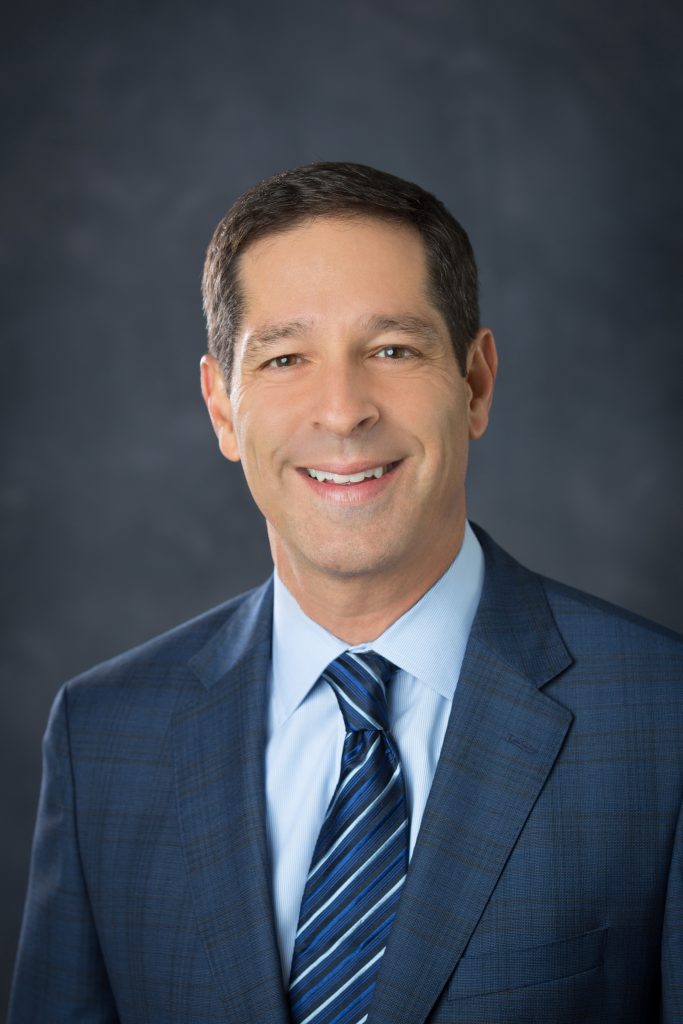 CEO of Renaissance
CEO of Renaissance
What His Current Focus Is: Daniel is focused on building an organization that delivers powerful student growth data and insights. He believes actionable data is key to personalized learning, and this data is at the heart of Renaissance solutions. Educators can use assessments to understand what each student has mastered, and then place students into the right level of instructional curriculum. Renaissance is also increasing equity and access through its recent acquisition of myON, a provider of digital literacy solutions. By adding myON, Renaissance provides students with unlimited access to more than 13,000 digital books.
How He’s Transforming the EdTech Space: Daniel and team have launched Renaissance Flow 360, a solution that drives personalized learning by bridging assessment to instruction. It improves learning outcomes for every student, and provides centralized data on student mastery across multiple educational resources, including the top educational vendors.
What His Background Is: Daniel has nearly 20 years of experience in education. Prior to joining Renaissance in 2017, he was CEO of Adtalem Global Education (formerly DeVry Education), a global provider of educational services. He led Adtalem from 2006 through 2016 and drove its transformation from a domestic, single university to an industry-leading institution serving students around the world and across multiple disciplines.
What May Surprise You About Him: Daniel was brought up in a family that highly valued education, especially varied educational experiences. In fact, their rule was, “You can go to any college you want, as long as it’s Michigan.”
LinkedIn: https://www.linkedin.com/in/dmhamburger18/
Email: [email protected]
6. Bill Latham
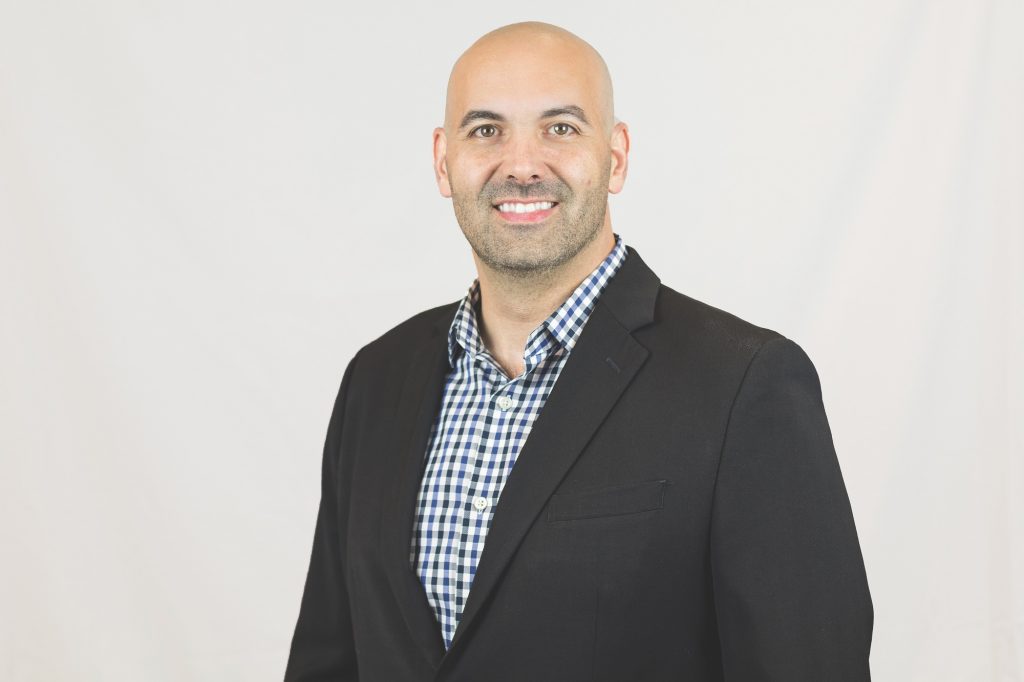 CEO, MeTEOR Education
CEO, MeTEOR Education
What His Current Focus Is: Bill Latham is CEO and senior program designer at MeTEOR Education, a company that inspires and supports communities and their students in creating transformational learning experiences. Focused on the strong interplay between pedagogy and support spaces, Latham is a leading global advocate for the constant, consistent support of best-practice instruction through living classroom environments. He and his team’s designs have led to measurable increases in basic literacy, collaborative learning, and complexity of student tasks at all grade levels. Latham is connected with leading global researchers and academics in the field, employing the latest best practice findings as he leads design work for classrooms, school buildings, and broader school systems.
How He’s Transforming the EdTech Space: Bill is a leader in the design and implementation of holistic, high-impact learning experiences and environments, he has consulted with schools, districts, and governmental agencies across the Western Hemisphere on the design, outfitting and implementation of classroom and school environments aligned to critical learning priorities for more than 15 years. He and his team have directly served more than 1,000 schools in the United States alone. Latham is an architect of the human engagement by design methodology. He focuses on the integration of foundational engagement frameworks, technology, furnishings, and space to drive specific-learning 21st Century college and career-ready outcomes. He is the co-author of the book Humanizing the Education Machine: How to Create Schools That Turn Disengaged Kids Into Inspired Learners (Wiley; November 7, 2016).
What His Background Is: Bill holds a B.S. degree in Chemistry and an MBA from the University of Florida.
What May Surprise You About Him: He is active in martial arts and competes at a national level.
Twitter: @BillLatham3
Email: [email protected]
7. Arne Bergby
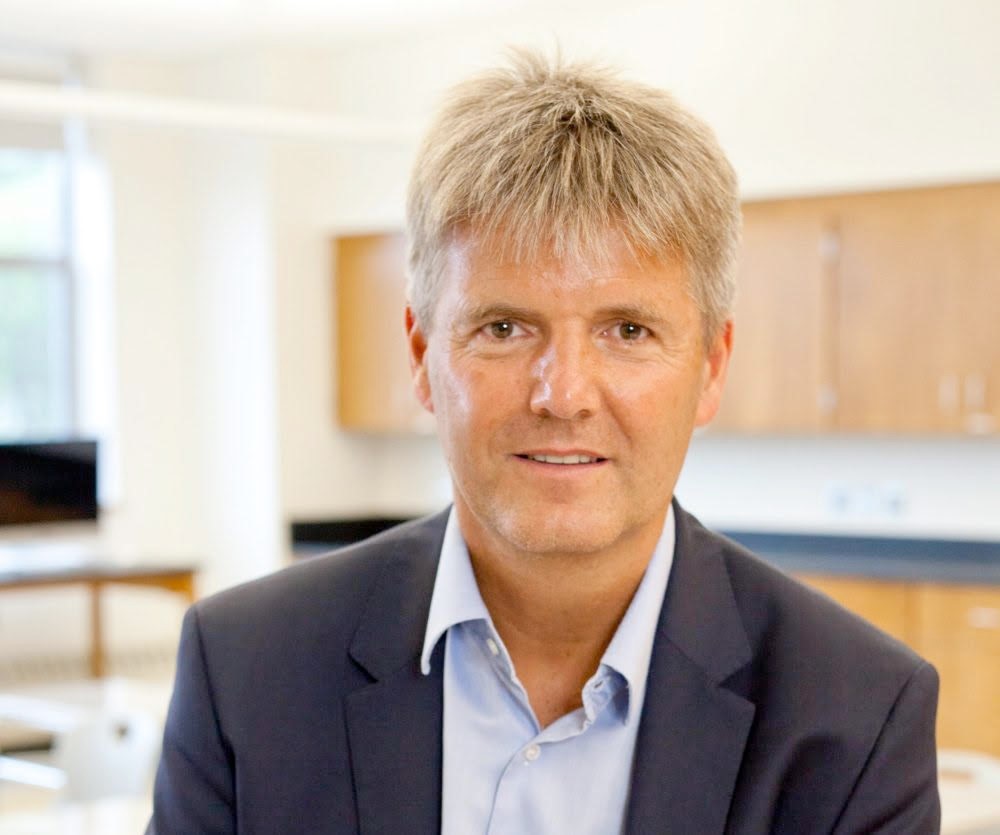 CEO of itslearning
CEO of itslearning
His Current Focus: Arne joined itslearning in 2004. Passionate about education and helping students and teachers succeed, he has led itslearning to be Europe’s largest provider of educational learning platforms. As CEO, his focus is on making the student-centered teaching and learning platform the ideal one stop shop for creating and delivering courses and assessments, managing standards-aligned content, enabling communication and collaboration for teachers, parents and students, and more.
Put another way, itslearning strives to remain at the heart of education. Under Arne’s leadership itslearning continues to gain market share in the United States as it partners with Houston (TX) Independent School District, Forsyth County (GA) Schools, Fort Worth (TX) Independent School District, Metropolitan School District of Wayne Township (IN) and San Bernardino (CA) City Unified School District – to name just a few. Designed for teachers and how they want to teach, itslearning is a cloud-based learning platform used by millions of teachers, students, administrators and parents around the world. It can be found at all levels of education, from primary schools to universities, helping teachers make education more inspiring and valuable for today’s students.
How He’s Transforming the EdTech Space: Arne is working to transform the education space by overseeing the continuous improvement and rise of itslearning as one of the world’s most robust and popular learning management systems. itslearning has over seven million active users worldwide, mainly in the United States, Norway, Sweden, Denmark, the Netherlands, the United Kingdom, France, and Germany. Made for today’s classroom, itslearning is one of the most innovative products in the global education sector.
His Background: Previously, Arne served as managing director of Tieto, one of the largest ICT companies in Europe. Arne received a Master of Management degree from the Norwegian Business School in 1987. He is a member of the Educational Consultants Network, K-12 Assistive Technology Professionals, and is on the Board of Directors of G.C. Rieber.
What May Surprise You About Him:
He’s fiercely competitive. Whatever your game — skiing, running, even cooking — he’s always up for good-natured competition.
Twitter: @ArneBergby
Email: [email protected]
8. Todd Brekhus

President of myON at Renaissance Learning
What His Current Focus Is: Todd believes that literacy, student choice, and personalized learning are the three keys to transforming learning for all students. myON’s expansive digital content library and literacy tools, paired with Renaissance’s complementary reading practice and assessment offerings, enables the company to deliver a comprehensive, innovative suite of reading solutions to educators and students worldwide. Todd and his team work to inspire the love of reading and learning by leveling the playing field with unlimited access to books. He is a lifelong advocate of reading and literacy.
How He’s Transforming the EdTech Space: Through myON’s literacy ecosystem, Todd and his team offer more than 4 million students instant and unlimited access to more than 13,000 enhanced digital books and daily news articles, real-time assessments, and close reading tools.
What His Background Is: As the President of myON at Renaissance Learning, Todd is focused on product development and providing educators tools to create a personalized learning environment. Before joining the edtech business community, he spent eight years in education as a teacher, department chair, and technology director. He has led successful edtech companies including Capstone Digital, PLATO Learning, Learning Elements, and MCI WorldCom, where he helped develop and implement the Marco Polo program.
What May Surprise You About Him: In high school, Todd was a competitive slalom ski racer.
Twitter: @ToddBrekhus
Email: [email protected]
9. Jay King
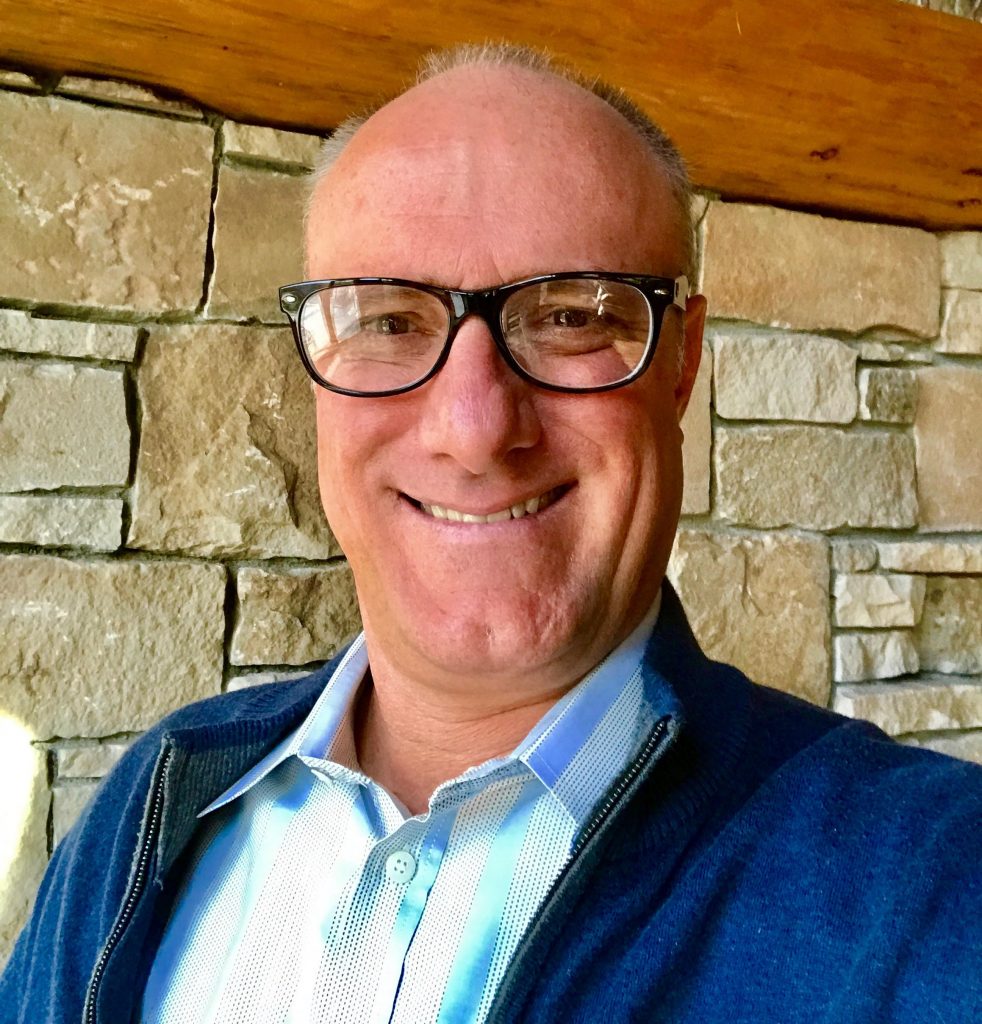 COO of StudySync®
COO of StudySync®
What His Current Focus Is: Jay is presently focused on serving as the COO of StudySync. Over the past year, Jay has traveled to several districts throughout California, Illinois, and Arizona to meet and learn from StudySync users, including districts in Geneva, Elgin, Huntley, St. Helena, Paradise Valley, and more. Recently, Jay has been instrumental in bringing StudySync’s new production studio to Petaluma, CA, his hometown. As a product of the Petaluma public school education, Jay believes that Petaluma encompasses a small-town culture, with strong community values, which are common throughout the U.S. and indicative of how K-12 education can have such a positive impact on society. The studio will be the site where several media productions are created, including StudySync® TV.
How He’s Transforming the EdTech Space: In 2009, Jay co-founded StudySync with StudySync’s CEO, Robert Romano. Their vision was to leverage technology and social learning to engage students in the great works of literature. As one of the nation’s most highly regarded literacy curriculums, StudySync provides these digitally-connected students with media-rich learning experiences, real-world topics, and a direct read-write connection, while giving teachers flexible digital tools and engaging print resources supporting teaching, differentiation, and standards-based assessment. In 2013 StudySync partnered with McGraw-Hill Education to exclusively distribute StudySync in the k – 12 market. The product has also received numerous prestigious awards including the coveted Innovation Award from the Association of Educational Publishers (AEP).
What His Background Is: Previously, Jay co-founded EdVantage Software, also with Robert Romano, and led the development of several award-winning products. After its acquisition of EdVantage, Jay led Riverdeep’s web development team, winning the prestigious CODiE award. With StudySync, Jay has led the development of StudySync’s ELA and SyncBlast products, which have gained wide acceptance and accolades. Jay has an M.S. in Accounting from Santa Clara University.
What May Surprise You About Him: Jay is a certified sports fanatic. He is probably watching ESPN right now.
Twitter: @johnjking
Email: [email protected]
10. Chris Twyman
 Co-Founder & CEO of BoomWriter Media
Co-Founder & CEO of BoomWriter Media
What His Current Focus Is: Chris’s passion is to make sure that edtech doesn’t widen the achievement gap. As an entrepreneur in the education industry, either you target your product at the schools that can afford to pay or you make sure everyone can use it and find a way to fund the business. The latter is a much bigger challenge than the former, but that is the mission of BoomWriter. If it is successful, it will narrow the achievement gap. Chris’s investors understand this mission, and everyone sleeps more soundly because of that.
How He’s Transforming the EdTech Space: Many kids don’t like writing, but they do like using their imaginations. BoomWriter allows students to inject imagination into their writing, making it super engaging. Engaged kids produce better work, and better writing impacts all other areas of education.
What His Background Is: Chris has always worked in the technology space. From his start in the UK through to living in Boston, he has worked at large software companies like Sybase, Computer Associates, and Tibco. Before founding BoomWriter, Chris was the founder and CEO of an HR technology start-up. Somewhere in there, he also squeezed in an MBA and is a partner in a small VC fund based in Miami.
What May Surprise You About Him: He has run the Boston Marathon twice and is a paid-up member of the Bigfoot Research Organization.
Twitter: @BoomWriter_
Email: [email protected]
11. Angela Maiers

Founder of Maiers Educational Services, Teacher, Writer
What Her Current Focus Is: With over 25 years of experience in education, Angela Maiers is a strong proponent of helping students feel passionate about learning and schools. She is the creator of the You Matter Movement and an advocate for the Genius Hour in schools. The You Matter Movement is centered on helping teachers help students feel seen, recognized, and valued which, in turn, helps them plug into their education. The Genius Hour is an idea she borrowed from Google’s 20% Time policy for their engineers. Under this theory, students are given (at least) one class period per week to pursue their passions under the tutelage of a teacher.
How She’s Transforming the EdTech Space: Maiers works to help teachers and students understand and employ the innovative power of technology. Through Twitter, Instagram, and other social media, Maiers encourages teachers and other adults to send Mattergrams, messages tagged #YouMatter that encourage students and children to recognize their power to impact the world in a positive way.
What Her Background Is: Maiers is an alumna of the University of Iowa. She received a Bachelor’s in Education. She also holds a Master’s degree in Education and Curriculum from Drake University. She has 28 years of teaching experience across a range of grade levels, and her work has impacted over 78,000 American classrooms.
What May Surprise You About Her: Maiers claims that the elementary school job of being the milk carrier is the most important, most coveted of responsibilities, and can be used as a microcosm of viewing your place in the world.
Twitter: @angelamaiers
Email: [email protected]
12. Nichole Pinkard
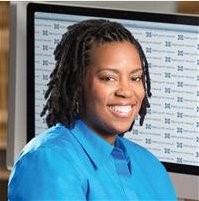 Associate Professor at DePaul University in the College of Computing and Digital Media
Associate Professor at DePaul University in the College of Computing and Digital Media
What Her Current Focus Is: Pinkard is an Associate Professor at DePaul University in the College of Computing and Digital Media. Her research is focused on the design and use of pedagogical-based social networks, new media literacy learning outcomes, ecological models of learning and developing pathways for urban youth. She is a strong advocate for digital literacy and believes that it will lead a revolution in the world of education. This is why she founded the Digital Youth Network in 2006. This Network seeks to help educators learn to teach with technology and digital media. It further seeks to ensure that technology is available to everyone, regardless of their socioeconomic background.
How She’s Transforming the EdTech Space: Pinkard founded the Digital Youth Network (DYN) in 2006, and she has been creating initiatives that transform the edtech space every since. The DYN model begins with sixth to eighth-grade education and focuses on mandatory in-school media arts classes and optional after-school programs. She was also a co-founder of YOUmedia, a public learning space for teens that immerses students in a context of traditional media to produce new media artifacts like games, videos, and virtual worlds. In April 2010, Pinkard co-founded RemixWorld along with Robert Chang. RemixWorld is a cloud-based social learning network for primary and secondary education, which seeks to safely and securely connect children and adolescents with curriculum, extended learning, and mentorship opportunities.
What Her Background Is: Pinkard holds a B.S. in Computer Science from Stanford University, an M.S. in Computer Science from Northwestern University, and a Ph.D. in Learning Sciences from Northwestern University.
What May Surprise You About Her: Nothing. We mean that in a good way.
Twitter: @npinkard
Email: Nichole can be contacted via her website: http://digitalyouthnetwork.org/#our-team
13. Steven Anderson

Co-founder of #EdChat on Twitter, Education Consultant
What His Current Focus Is: Steven Anderson is an educational expert who focuses on the fusion of technology and social media in pedagogy. Anderson is a blogger and a former classroom teacher and district technology director. He hosts the weekly #EdChat on Twitter, which boasts over 1500 participants each week. Anderson’s #EdChats have earned him the Twitterer of the Year distinction twice.
How He’s Transforming the EdTech Space: Anderson works to help teachers meet students in the places where they live: the digital universe. He travels the country, speaking at schools and conferences about how to safely and appropriately integrate social media in classrooms and how to leverage students’ knowledge of technology to help them learn and grow.
What His Background Is: Anderson is a native of North Carolina, where he still currently resides. He earned his bachelor’s degree in Middle-Grade Math and Science Education from Western Carolina University and then obtained a Master’s degree in Instructional Technology from East Carolina University. He was the director of technology at Winston-Salem/Forsyth County Schools in Winston-Salem, NC.
What May Surprise You About Him: Anderson is also the author of 3 books geared toward educators and administrators about efficacy in using technology.
Twitter: @web20classroom
Email: [email protected]
14. Rafranz Davis
 Executive Director of Professional and Digital Learning for Lufkin ISD
Executive Director of Professional and Digital Learning for Lufkin ISD
What Her Current Focus Is: As Executive Director of Professional and Digital Learning, Rafranz helps educators to effectively implement digital learning into their classrooms. She is a speaker, blogger, and an edtech advocate who is never afraid to speak truth to any situation. She is a voice for diverse perspectives in edtech, which have been missing since edtech’s inception. She is the author of The Missing Voices in EdTech: Bringing Diversity into EdTech, a book that puts a spotlight on the fact that the education community has failed to consider the viewpoints of people of color in discussions about edtech.
How She’s Transforming the EdTech Space: By advocating for diverse populations in edtech, she is giving a voice to a population that edtech influencers and policy makers have never acknowledged. Because of her, and people like her, discussions around the intersection of edtech and diversity have increased exponentially. Just visit your favorite edtech blog or read the keynote and presentation titles at your favorite conference. Not to mention, when it comes to the implementation of edtech in an educational environment, Rafranz is a trailblazer.
What Her Background Is: Rafranz obtained an associate’s degree from Navarro College and bachelor’s and master’s degrees from Texas A&M University–Commerce. Since her undergraduate days, she has devoted her life to helping educators implement technology in educational environments. She was a middle school math teacher before becoming a curricular strategist and technologist.
What May Surprise You About Her: Rafranz is never afraid to call a spade a spade.
Twitter: @rafranzdavis
Email: Rafranz can be contacted via her website: http://rafranzdavis.com/

Founder & CEO of Bloomz, Inc.
What His Current Focus Is: Chaks is focused on continuing the fast growth of the Bloomz app, an easy-to-use parent-teacher communication tool for today’s parents, who are used to communicating through their smartphones. Bloomz has a familiar social media interface that encourages parents to participate in their child’s learning and connect with their teacher through a secure platform. With the launch of their school-wide offering, Chaks has also created a powerful premium subscription for school administrators that includes useful data analytics, premium access for all their members, and unlimited membership and storage.
How He’s Transforming the EdTech Space: Chaks has helped bring Bloomz to more than 39,000 schools around the world by combining a social networking experience with a comprehensive set of tools—messaging and media sharing, calendar, signups, and student behavior tracking—in one friendly, easy-to-use app.
What His Background Is: Before creating Bloomz, Chaks applied his computer science and engineering education at companies such as Microsoft, AskMe, and most recently as the vice president of product and partnerships at GlobalScholar, where he focused on building an end-to-end learning platform to connect teachers, students, and administrators. He founded Bloomz, Inc. in January 2014 and serves as the Founder and CEO.
What May Surprise You About Him: Chaks created Bloomz after he and his wife both fell ill and had communication difficulties with his children’s teachers.
Twitter: @achaks
Email: [email protected]
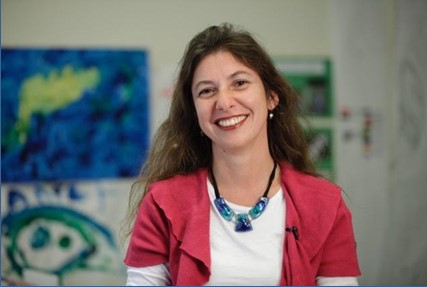 Co-founder and chief scientist at KinderLab Robotics, Inc., and a professor at the Eliot-Pearson Department of Child Study and Human Development and the Computer Science Department at Tufts University, where she directs the DevTech research group.
Co-founder and chief scientist at KinderLab Robotics, Inc., and a professor at the Eliot-Pearson Department of Child Study and Human Development and the Computer Science Department at Tufts University, where she directs the DevTech research group.
What Her Current Focus Is: Dr. Bers is focused on innovative learning technologies to promote positive youth development. Her research focuses on how technology, such as robotics and programming languages, promotes new ways of thinking and learning in early childhood. With Dr. Bers’ approach, introducing computational thinking in early childhood, students learn to be creators and collaborators with technology and with each other. Her most recent book explores coding as a “new language”, and how it can be presented in a playful context, merging STEM/STEAM and coding with social-emotional learning.
How She’s Transforming the EdTech Space: Dr. Bers developed the KIBO robot kit for children 4–7, which is programmed with wooden blocks without keyboards or screens, and is used in 52 countries. She also co-developed the free ScratchJr programming language with over 9.5M downloads.
What Her Background Is: Dr. Bers did her undergraduate at Buenos Aires University, and received a Master’s degree from Boston University and a Master of Science and PhD from the MIT Media Laboratory, where she studied under Dr. Seymour Papert, world-renowned pioneer in developing the first programming language for children, LOGO. She has received prestigious awards, has written four books, and in 2014 did a TEDx talk titled “Young programmers – think playgrounds, not playpens.”
What May Surprise You About Her: Dr. Bers is from Argentina, has three children, speaks four languages, dances tango, and has worked all over the world.
Twitter: @marinabers
Email: [email protected]
17. Vicki Davis

Creator of the Cool Cat Teacher Blog, IT Administrator and Teacher at Westwood Schools
What Her Current Focus Is: Vicki Davis is a current school teacher and blogger. She is also a freelance writer who focuses on professional development for teachers, inspiring them to use technology and build meaningful relationships with their students. Through her blog and her two books, she reaches hundreds of thousands of teachers, inspiring them to share their trials and triumphs and learn from one another, creating a holistic, wholesome environment to foster student achievement.
How She’s Transforming the EdTech Space: Davis’ blog, the Cool Cat Teacher Blog, has garnered much attention and numerous awards, including the Edublogger Award for Best Teacher Blog. Her current project, the global collaborative app project MAD About Mattering, encourages students to create “apps that matter” in collaborative environments, applying the skills and knowledge they learn in the classroom to better the world around them.
What Her Background Is: Davis has been a full-time teacher and IT director at a school in Camilla, Georgia since 2002. She was inspired to begin pursuing professional and teacher development when she began to feel stretched thin – ineffective in the classroom and not as present as she would have liked at home with her children. Two of her children have learning differences, and she began her educational ministry in hopes to better understand students who learn differently like her own children.
What May Surprise You About Her: Davis and her students have traveled all over the world, including to Qatar, India, China, Hawaii, and UAE to present to teachers worldwide about the impact of technology.
Twitter: @coolcatteacher
Email: Vicki can be contacted via her website: http://www.coolcatteacher.com/contact/

Co-founder of #EdChat, Creator of 30 Goals Challenge for Education
What Her Current Focus Is: Shelly Sanchez Terrell is an international speaker and e-learning and digital learning specialist. She has worked with teachers and taught English language learners in over 20 countries. She has also been recognized as one of Microsoft’s Heroes for Education for her work promoting teacher-driven professional development and the integration of technology in the classroom. Terrell offers webinars and online presentations each week to reach out to teachers across the United States and the world.
How She’s Transforming the EdTech Space: Terrell has inspired over 10,000 teachers to transform their classrooms through her 30 Goals Challenge, which guides the teacher to integrate new technology in his or her classroom, avoid the dreaded “teacher burnout,” and reconnect with students. The Goals Challenge helps teachers set both short- and long-term goals to reinvigorate his or her passion for education.
What Her Background Is: Terrell received her Bachelor’s degree in English from the University of Texas at San Antonio, and her Master’s degree in curriculum instruction ESL from the University of Phoenix. She worked as an ESOL teacher and social media community manager before shifting her focus to teacher training and outreach.
What May Surprise You About Her: Terrell has not only taught English to language learners in the United States but has taught abroad in Germany and to online learners in Spain as well.
Twitter: @shellterrell
Email: [email protected]
19. Eric Sheninger
 Award-Winning Former Principal and Author
Award-Winning Former Principal and Author
What His Current Focus Is: Eric is an award-winning former principal who is changing the way that schools think about and also utilize technology. His primary focus is helping schools harness the power of edtech and use it not only to connect with students but also to help them achieve academically. He is an accomplished speaker and author who tweets about all things education.
How He’s Transforming the EdTech Space: Eric is an avid blogger, and his thought-provoking and practical posts shed light on the need for thoughtful technology implementation, more effective learning strategies, and stronger school branding, among other ideas. He is helping schools lead and learn in a digital age. He is responsible for Pillars of Digital Leadership, which is a framework that seeks to transform school cultures.
What His Background Is: Eric is a senior fellow and thought leader on digital leadership with the International Center for Leadership in Education. Before that, he was an award-winning Principal at New Milford High School. Under his helm, the school became a globally recognized model for innovative practices in edtech. Sheninger holds two bachelor’s degrees — a B.S. from Salisbury University and a B.S. from University of Maryland Eastern Shore — and a master’s in education from the East Stroudsburg University of Pennsylvania.
What May Surprise You About Him: Even with his busy schedule, he has found time to write 5 books.
Twitter: @e_sheninger
Email: [email protected]
20. Lucy Gray

Education Consultant, Co-founder of the Global Education Conference
What Her Current Focus Is: Lucy Gray is an educational consultant, Apple Distinguished Educator, and Google Certified Teacher. Gray’s consulting is focused on presenting to teachers and staffs about best practices in technology integration, information literacy, global education initiatives, and harnessing the power of social media. Currently, Gray is working as an innovation coach, mentoring elementary school teachers to explore and create mobile learning opportunities.
How She’s Transforming the EdTech Space: Gray creates hands-on experiences for teachers, coaching them through the process of creating cultures of creativity and innovation in their schools. Instead of simply presenting or lecturing, she dives into schools, meeting regularly with their employees to promote positive change. She also works as a liaison in transitioning schools toward 1:1 technology integration.
What Her Background Is: Gray received her degree in art history and elementary education from Beloit College in 1989, followed by a Master’s degree in technology in education from National-Louis University in 2002. She has taught in the Chicago Public School system, University of Chicago Laboratory Schools, and has worked in various capacities at the University of Chicago.
What May Surprise You About Her: Gray makes all of her consulting presentations available for free on her web page at http://www.lucygrayconsulting.com/presentations.php
Twitter: @elemenous
Email: [email protected]
Conclusion
As you can see, there is no shortage of global edtech influencers out there. Who did we forget? Do you have any edtech influencers who you know and follow? Let us know.
 When online education began, students had access to precious few degree programs. Typically, only classes that required little communication and less hands-on training were candidates for digital classrooms. However, as education technology developed — and as interest in online education grew — students found more and more degrees available over the web.
When online education began, students had access to precious few degree programs. Typically, only classes that required little communication and less hands-on training were candidates for digital classrooms. However, as education technology developed — and as interest in online education grew — students found more and more degrees available over the web.
Today, more than 17 percent of higher education schools offer full-time online degree programs, and the options are incredibly diverse. Nearly every student in nearly every field can find courses available online, bringing the world closer to affordable, attainable higher education. To celebrate, here is a brief history of online degree options — and what we can expect from online education in the near future.
Aside from computer science courses — which only became valuable well after e-learning was established — business degrees seem the most obvious candidates for online education. First, advanced business degrees are sought primarily by adults already employed in full-time careers; thus, the flexibility of online courses is unendingly appealing to business schools’ core audience.
Furthermore, business classes rarely require hands-on attention from professors, so students can be certain of learning the correct material without bothering to journey to a university campus. Concepts like finance and marketing — as well as skills like selling, recruiting, and leading — can be acquired just as effectively through a computer screen as in a physical classroom.
Business school integrated quickly into online education sites. Today, business learning opportunities are seemingly unending; here are a few online degree options for the business-inclined:
As for-profit online universities gained popularity in the late 1990s and early 2000s, they began experimenting with more programs to offer digitally inclined students. In the previous few decades, correspondence courses proved that many subjects in the humanities were well-suited to out-of-classroom students, so degree programs in “soft” subjects like literature, art, history, and religion made their way to the web.
Like business courses, humanities classes rarely require practical instruction; most often, students read materials outside of class and review those materials with peers and professors. Such experiences are easily completed through an e-learning portal. However, unlike most business courses, humanities studies fail to provide students with obvious careers post-graduation. Thus, online schools adapted to the changing needs of its student body by providing a variety of online student services, to include career preparation and placement, course counseling, and even tutoring.
Today, online humanities degree options are extensive, and giving online students access to the cultural degrees they crave, such as:
 On the opposite end of the education spectrum, engineering degrees require extensive applied instruction. Engineers study complex subjects like calculus and physics and must be able to apply theories to the real world. In universities, engineers are seen to build physical projects: catapults, miniature towers, better mousetraps, etc. Yet, many online schools are integrating engineering degree programs into their offerings.
On the opposite end of the education spectrum, engineering degrees require extensive applied instruction. Engineers study complex subjects like calculus and physics and must be able to apply theories to the real world. In universities, engineers are seen to build physical projects: catapults, miniature towers, better mousetraps, etc. Yet, many online schools are integrating engineering degree programs into their offerings.
Less than a decade ago, teaching engineering online was impossible, but thanks to advances in e-learning technology, exceedingly complex programs like online biomedical engineering truly exist. The primary breakthrough was in simulations: Once schools could accurately replicate laboratory conditions in a digital environment, online engineering courses could offer legitimate instruction.
Today, all manner of engineering programs can be found online, and some of the most popular include:
In less than a century, classrooms have moved from chalk and blackboards to digital screens. Some experts envision a future where physical learning environments are unnecessary, and where every student attends classes over the internet. Already, 95 percent of universities offer at least one fully online course, and 17 percent of universities offer entirely digital degree programs — and that number is growing every semester as more students clamor for the flexibility and affordability of online school.
Some experts are taking the online learning revolution even farther. Former MIT dean Christine Ortiz argues that the online schools of the future will not be segmented into colleges and majors; there won’t be classrooms or even a rigid lecture structure. Instead, all information will be available online, and students will gain certifications through completed projects.
This vision might seem far-fetched, but as more and more degree programs become available online, students have more options than ever for their educations. Soon enough, online learning will be limited only by students’ time and imagination.